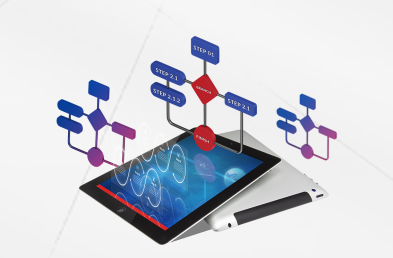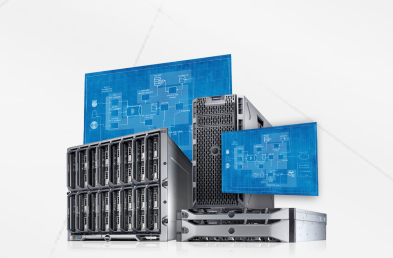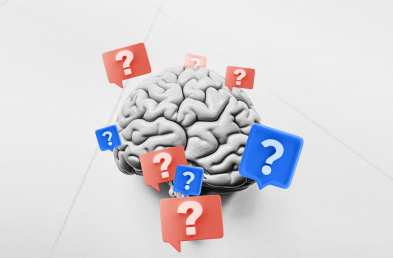The landscape of Human Capital Management (HCM) in Canadian municipalities is evolving rapidly, presenting new challenges that require innovative solutions. Education technology (EdTech) continues to be a powerful tool to address these challenges and improve the overall experience for municipal employees and HR departments.
Let’s break down some existing and new challenges in HCM within the municipal landscape and how EdTech can be leveraged to overcome them.
Emerging Challenges in Municipal Human Capital Management
Skill Gaps and Rapid Technological Change
Canadian municipalities face a growing skills gap as technology advances and job requirements evolve. Many employees lack the digital skills to keep pace with new systems and processes implemented across municipal departments. This skills mismatch can lead to reduced productivity and employee frustration.
Consequently, that leads to a drop in engagement and, over time, affects the environment across the organization.
Remote and Hybrid Work Models
The COVID-19 pandemic has accelerated the adoption of remote and hybrid work models in Canadian municipalities. While this shift offers flexibility, it challenges managing and engaging a distributed workforce. HR departments must adapt strategies to ensure effective communication, collaboration, and performance management in these new work environments.
There is no one-fits-all strategy. It’s about balancing what works for your teams and what is required under municipal standards and guidelines.
Diversity, Equity, and Inclusion (DEI) Initiatives
Canadian municipalities increasingly focus on improving workforce diversity, equity, and inclusion. However, implementing effective DEI initiatives and measuring their impact remains challenging for many HR departments.
DEI challenges arise every day. With them, creativity must rise to the challenge of figuring out solutions that support the individual and work to create harmony within the community.
Employee Well-being and Mental Health
The last few years have highlighted the importance of employee well-being and mental health. Municipalities are now tasked with developing comprehensive wellness programs and supporting employees facing stress, burnout, and other mental health challenges.
Succession Planning and Knowledge Transfer
As the municipal workforce ages, succession planning and knowledge transfer have become critical issues. Many Canadian municipalities struggle to identify and develop future leaders while ensuring institutional knowledge is preserved and passed on to younger employees.
Leveraging Education Technology to Address HCM Challenges
Skills Assessment and Development
EdTech platforms with innovative technology, including artificial intelligence, can help municipalities identify skills gaps within their workforce and create personalized learning paths for employees. These systems can analyze job requirements, assess individual employee skills, and recommend targeted training programs to bridge the gap.
A learning management system (LMS) powered with Performance Review technology could automatically suggest relevant courses and resources to municipal employees based on their current skill levels and job roles, ensuring continuous skill development.
Virtual Reality (VR) and Augmented Reality (AR) Training
Immersive technologies for course design, such as VR and AR, can provide innovative training experiences for municipal employees, particularly for roles that require hands-on skills or involve potentially dangerous situations.
Municipal firefighters could use VR simulations and scenario assessment programs to practice emergency response plans in a safe, controlled environment, improving their skills and decision-making abilities without real-world risks.
Microlearning and Mobile Learning Platforms
Municipalities can implement microlearning and mobile learning platforms to accommodate the needs of a distributed workforce. These tools deliver bite-sized, easily digestible content that employees can access anytime, anywhere, promoting continuous learning and skill development.
A mobile app could provide municipal employees with daily 5-minute lessons on cybersecurity best practices or customer service skills, allowing them to learn on the go and apply new knowledge immediately.
Gamification and Social Learning
Incorporating gamification elements and social learning features into EdTech platforms can increase engagement and motivation among municipal employees and build teamwork and collaboration. These approaches can make learning more enjoyable and foster a culture of knowledge sharing within the organization.
A municipal learning platform could include leaderboards, badges, and team challenges to encourage friendly competition and collaboration among employees as they complete training modules and acquire new skills.
Data Analytics for Performance Management and DEI Initiatives
Advanced analytics tools can help HR departments track and measure the effectiveness of their HCM initiatives, including DEI programs. Municipalities can make more informed decisions and continuously improve their HR strategies by leveraging data-driven insights.
Performance reports and dashboards could provide real-time insights into hiring practices, promotion rates, and employee engagement across different demographic groups, helping municipalities identify areas for improvement in their DEI efforts.
Virtual Mentoring and Coaching Programs
Learning Management Systems like ALEN LMS can facilitate virtual mentoring and coaching programs, connecting experienced municipal employees with younger staff members for knowledge transfer and professional development.
A digital mentoring plugin could match mentors and mentees based on skills, interests, and career goals, enabling structured knowledge sharing and succession planning across departments.
AI-Powered Chatbots for Employee Support
Implementing AI-powered chatbots can provide 24/7 support for municipal employees, answering common HR-related questions and guiding them through various processes.
An HR chatbot could assist employees with leave requests, benefits inquiries, and policy questions, reducing the workload on HR staff and improving the overall employee experience.
Developing Proprietary Technology for Workflow Automation and Compliance
In addition to leveraging existing EdTech solutions, developing proprietary technology to simplify and automate workflows and compliance has become a key focus for many organizations seeking to improve efficiency and reduce risks. By creating custom tools tailored to their needs, Canadian municipalities can streamline processes, enhance productivity, and consistently adhere to regulatory requirements.
One of the primary benefits of developing proprietary workflow automation technology is the ability to address unique business challenges and integrate seamlessly with existing systems. Off-the-shelf solutions often require compromises or workarounds, while custom-built tools can be designed to fit perfectly within an organization’s operational framework. This tailored approach allows municipalities to automate complex, multi-step processes that may involve multiple departments or systems.
For compliance purposes, proprietary technology offers enhanced control and accountability. Custom-built compliance tools can be programmed to automatically flag potential issues, generate required reports, and maintain detailed audit trails. This reduces the risk of human error and provides a more robust defence against regulatory scrutiny. Additionally, as compliance requirements evolve, proprietary systems can be quickly adapted to meet new standards, ensuring ongoing adherence to changing regulations.
As SaaS development teams work to create and refine these tools, they often uncover new efficiencies and opportunities for improvement across the organization. This process of continuous refinement can lead to significant gains in productivity and cost savings over time.
Implementing EdTech Solutions in Canadian Municipalities
To successfully leverage LMS for HCM, including the integration of custom plugins, Canadian municipalities should consider the following steps:
- Conduct a thorough needs assessment to identify specific HCM challenges and priorities.
- Engage stakeholders from various departments to ensure buy-in and alignment with organizational goals.
- Evaluate and select an LMS that integrates well with existing systems and processes.
- Assess the potential for developing proprietary tools to address unique municipal needs.
- Develop a comprehensive implementation plan, including training for HR staff and employees and collaborating directly with your LMS supplier.
- Establish clear metrics to measure the impact of EdTech solutions and custom technology on HCM outcomes.
- Continuously gather feedback and iterate on the implementation to maximize effectiveness.
As the municipal sector adapts to changing work environments and technological advancements, leveraging EdTech and custom-built solutions will be crucial in developing a skilled, engaged, resilient workforce that can effectively serve Canadian communities.
By using technology to take a proactive approach to HCM, Canadian municipalities can position themselves at the forefront of innovation in public sector management. This will ultimately lead to better services for citizens and more satisfying careers for municipal employees.




